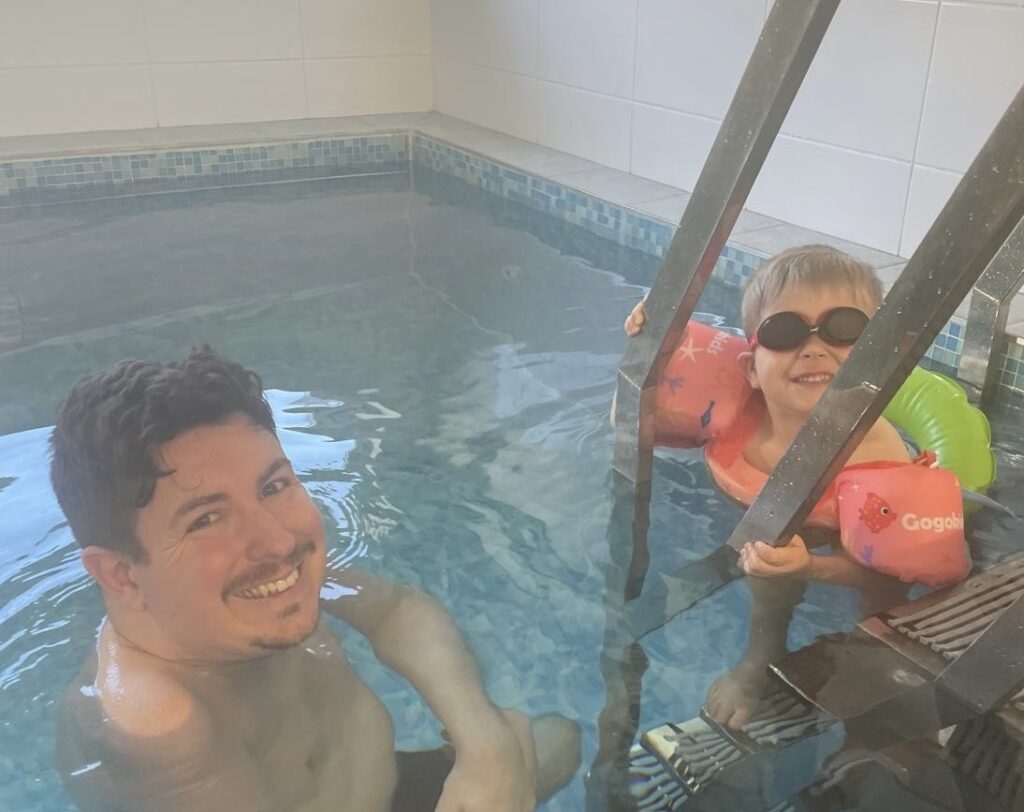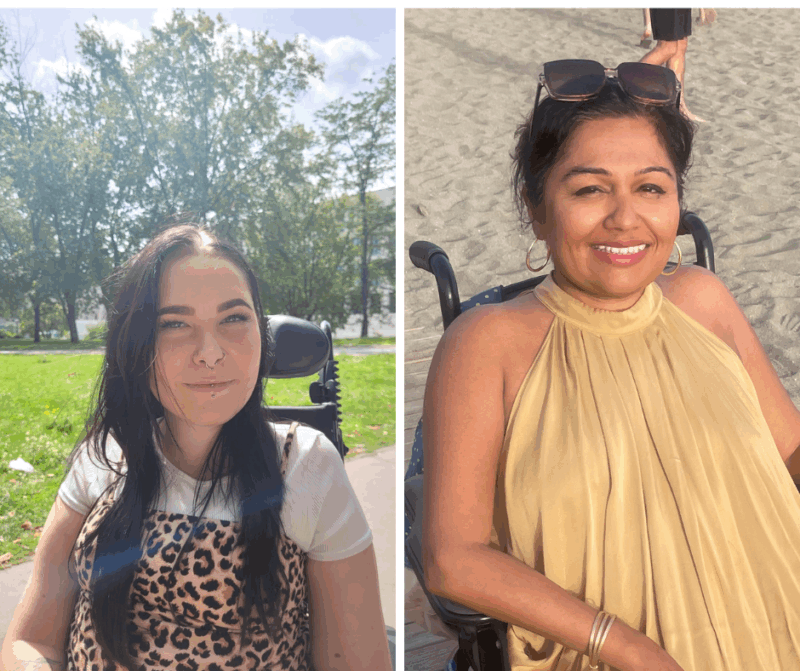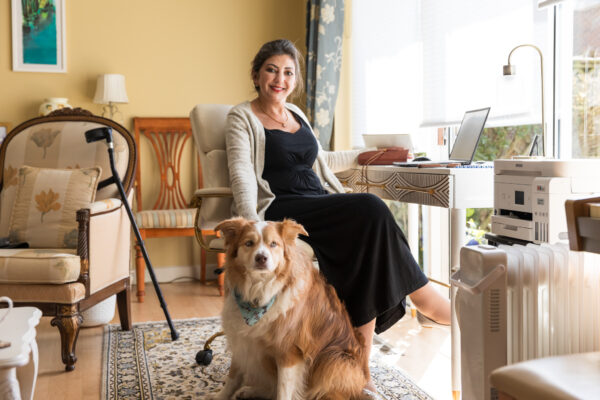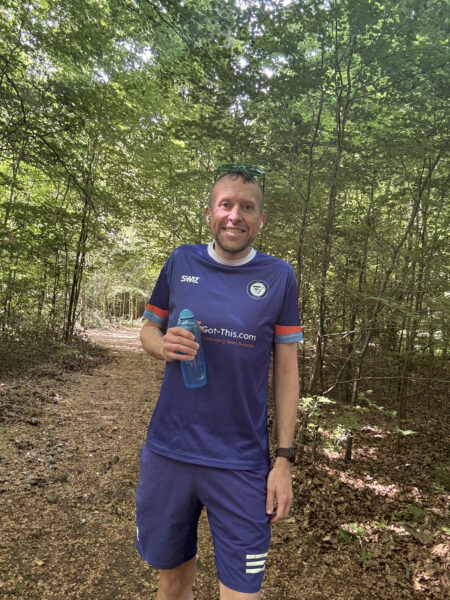Andy was diagnosed with limb girdle muscular dystrophy type 2 when he was 21. Now at 38, he’s been doing weekly hydrotherapy for the past 14 years. He explains how beneficial he’s found hydrotherapy, why access for people with muscle wasting conditions needs to improve, and about the charity he’s set up to allow more people in our community to experience the benefits of hydrotherapy.
Hydrotherapy has helped my condition so much – now I’m helping others access it

It’s amazing how much hydrotherapy enriches my life. It’s not just a form of exercise — it’s the only place I feel safe to move and stretch my body without risking harm. Day to day, I can now only walk short distances holding onto my wife’s arm or leaning on furniture around the house. But in the water? I experience a sense of freedom and independence that’s not possible anywhere else. It keeps me mobile, mentally balanced, and feeling more in control of a condition that’s constantly trying to take that control away.
Hydrotherapy was recommended early in my diagnosis
Before I was diagnosed, I went to see a physio because of a football injury. He noticed my muscles were unusually tight and asked if I’d been feeling slow or weak. That conversation led to a muscle biopsy and eventually my diagnosis. Soon after I was diagnosed, it was recommended I try hydrotherapy, and I haven’t looked back since.
I see so many benefits from hydrotherapy
I do my sessions once a week: about 20 minutes with one of my kids in the water, half an hour of my own routine, and then 20 minutes of land-based stretching. I’ve built my routine up over the years with guidance from my physio, who’s the same guy who originally thought something wasn’t quite right. He’s not a muscular dystrophy specialist but knows my body well.
Still, it’s me who ultimately decides what works. You have to listen to your body, especially with a progressive condition. For me, the biggest benefits are around stretching.
“I get a lot of contractions, so being able to stretch in warm water where everything is supported is massive.”
I can still swim — only on my back now — but even just floating, stretching, or gentle movement is so therapeutic. It improves my mobility, reduces pain, and lifts my mental state. The endorphin release from moving in water is a huge part of why I keep going. When I miss a week or two, I feel it straight away in how I walk and how my body feels.
Access to hydrotherapy needs to improve
I’m really lucky to have a hydrotherapy pool with an overhead hoist round the corner from me. When I started, I could still walk up a ramp at the front of the building and use the steps in the pool. Now, I have a reserved parking space around the back and use a hoist to get into the water. I know this isn’t often the case for people, though.
“It’s shocking, but in the UK, I’ve found more hydro pools for dogs than for people.”
It’s not just about physical access to pools either. This is where my frustration with the system really kicks in. The NHS is built to treat and fix — not to maintain. For people who can’t be rehabilitated but want to use hydrotherapy to help maintain their strength, movement, and reduce pain, they’re only offered a few sessions, if any at all.
“I had some hydro through the NHS early on, but it stopped after a short course. My condition is lifelong, so stopping therapy after six sessions isn’t just unhelpful – it’s damaging.”
That’s why I’ve privately funded my own sessions for years. But not everyone can afford that, and they shouldn’t have to.
It is also why I started a charity called Hydromuscles. We fund hydrotherapy for people with non-respiratory or cardiac muscle wasting conditions in the south of England. So far, we’ve supported nearly 60 people, giving them access to six months of weekly sessions. Many go on to continue it after the six months because the benefits are that significant.
We require a supporting letter from their specialist physio or consultant to ensure it’s safe, but beyond that, we try to remove every barrier we can.
Advice for the community
To anyone who’s unsure about hydrotherapy, I completely get it. It can be daunting. But I can only speak from experience — it’s been a game-changer for me. The water makes movement possible again. You’re still the boss of your body. You know your limits. But hydro gives you space to find those limits in a way that’s safe and empowering.
More people need to know about this, and more people need access to it. Because everyone deserves the chance to feel good in their body again, even just once a week.


